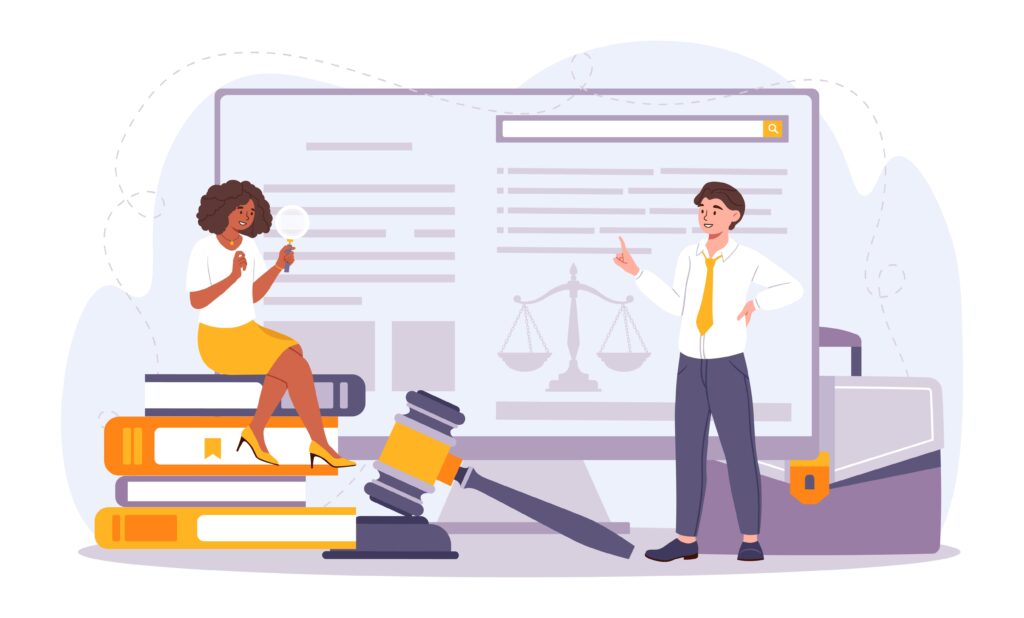Now that you've mastered the ins and outs of networking on LinkedIn, it's time to address another cornerstone of the legal world: the referral.
A well-placed referral is a powerful move for lawyers, but there's an art to it. Knowing when and how to refer a client can be just as important as knowing how to represent one. After all, this is a profession defined by expertise and relationships. Whether you're a solo practitioner with a niche practice or part of a larger firm with built-in resources, referrals are more than professional courtesy—they're a strategic skill. When done thoughtfully, referrals strengthen your reputation, support your clients, and grow your network.
Read on to find out how you can build a referral strategy that's thoughtful, ethical, and mutually beneficial, all while positioning yourself as a trusted resource in the legal community!

Timing is everything. The first step is knowing when it's time to refer. Referrals often come up when a client's need extends beyond your scope and the wise thing to do is to refer them to someone who can better serve their needs. However, the need can also arise when there's a conflict of interest, a particular matter lies outside your jurisdiction, or you are dealing with capacity issues, and you simply don't have the time to do it well.
The key? Recognizing when the right move is to send the client elsewhere and having the professionalism to make that call.
Build a reliable network. You can't refer a client to anyone unless you have a go-to list of trustworthy attorneys who would do the same for you. When building your network, take time to forge relationships with attorneys who specialize in areas you don't. It would also be wise to bond with those who share your values, ethics, and client approach. They should have a reputation for responsiveness and professionalism. In the era of cancel culture, making friends with the wrong people can come back to bite you.
Keep in mind that networking isn't about quantity; it's about quality. A few deep relationships will serve you better than many shallow ones. And try to be proactive. Build referral relationships before you need them so you don't wind up scrambling or taking shots in the dark.

Loop everyone in. Communication is everything! Referrals require clear, timely communication that involves everyone. This will help avoid misunderstandings or ethical slip-ups. If you have to make a referral, make sure you tell the client why you're doing so and reassure them that it's in their best interest. Confirm availability with the referred attorney before passing along client contact information. Finally, follow up to ensure everything is going smoothly for the client.
If a referral fee is involved, make sure it's disclosed and complies with the Rules of Professional Conduct.
Know it's a two-way street. Strong referral relationships are built on reciprocity and trust; it's not always going to be an "I scratch your back, you scratch mine" deal. Don't try to keep score on who has referred more clients because that's a recipe for resentment.
Instead, maintain your professionalism. Thank your referral sources and refer clients only when you believe the match is right—not out of obligation. Over time, your reputation as a helpful and ethical connector will do more for your practice than any direct marketing effort.

Stay in your lane. You know where your expertise lies. Many lawyers fear losing business by referring it away, but the truth is, thoughtful references will strengthen your brand. Clients appreciate transparency, honesty, and knowing that they are in the right hands.
You can also use referrals to refine your own practice by narrowing your focus, working more efficiently, and building a client base that aligns with your strengths. In short, referrals free you up to do your absolute best work!
Keep learning. Not sure who to refer to or how to start building your network? Look no further than PBI CLE! Our quality courses will introduce you to talented faculty in various practice areas, expose you to emerging issues, and keep you in compliance. Our in-person events are especially great for networking—check out what's coming up here!
Remember: Referring a matter isn't a sign of weakness...it's a sign of integrity. And in a profession built on trust, the lawyers who give great referrals are the ones who get great referrals. Done well, a single referral can strengthen a client relationship, grow your network, and elevate your standing in the legal community.
That’s the art of the referral—something every attorney should master.



